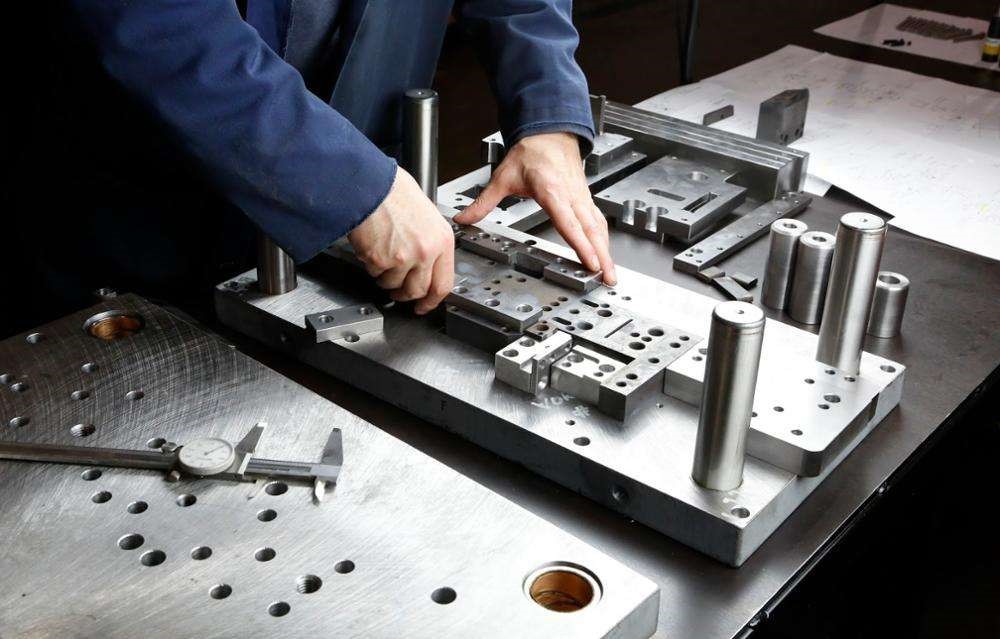Errors in the high-stakes manufacturing industry can lead to expensive delays, material waste, and lower product quality. As a strategic method to find and fix possible problems before full-scale production starts, forward-thinking manufacturers are increasingly using prototype tooling. By providing a vital link between design and mass production, this early stage enables businesses to evaluate, improve, and validate their production procedures with minimal risk. Manufacturers can mimic real manufacturing conditions by developing smaller versions of production tools, which may identify flaws and optimization opportunities that might otherwise go undetected until much more costly stages.

Design flaws that might not be visible in digital models or drawings are revealed by prototype tooling. Subtle differences in geometries, material flow, or mechanical interactions become instantly apparent when real-world materials and physical tools interact. By modifying designs prior to purchasing costly production tools, engineering teams can stop fundamental flaws from spreading throughout the production cycle through these early insights.
The prototype stage provides a low-risk setting for manufacturing process experimentation and improvement. Engineers can change variables like cycle times, temperatures, pressures, and material choices without affecting final tooling configurations or production schedules. As teams find more efficient processing techniques that would be expensive to adopt after production tooling is finalized, this optimization phase frequently results in notable increases in production efficiency. During this stage, CNC production techniques can be especially helpful as they enable rapid iterations of tooling designs with remarkable accuracy.
On paper, manufacturing tolerances appear simple, but in real-world production settings, they can be difficult to maintain consistently. Manufacturers can confirm that specified tolerances are both attainable and suitable for functional requirements by using prototype tooling. Engineers can decide whether to change the design or production procedures to satisfy crucial requirements when tolerance problems are discovered during prototyping.
Before full-scale manufacturing starts, prototype tooling gives production workers invaluable training opportunities. In a less stressful setting, operators can become acquainted with tooling configurations, handling protocols, and quality inspection methods. Production teams gain confidence from this preparation, which also drastically lowers operator errors during actual production.
While prototype tooling requires an initial investment, it represents a fraction of the cost of full-production tooling. Moreover, it offers protection against the higher financial risks associated with direct-to-production methods. Manufacturers can prevent costly tool modifications, production delays, material waste, and possible warranty claims by identifying and correcting problems during prototyping. Especially for complex components or high-volume production runs where the cost of errors increases quickly, this risk management strategy usually produces returns that are many times higher than the investment in prototype tooling.
Choosing the right prototype tooling partner is essential for ensuring high-quality, cost-effective, and efficient manufacturing. The right supplier can help reduce manufacturing errors, shorten product development cycles, and enhance overall production efficiency. Here are the key factors to consider when selecting a reliable prototype tooling manufacturer:
A top-tier prototype tooling provider should have state-of-the-art facilities equipped with high-precision CNC machining, EDM, injection molding, and rapid prototyping technologies. These capabilities ensure the production of high-accuracy prototype tools that meet your design requirements.
Your partner should offer a variety of materials, including aluminum, steel, and high-performance plastics, to meet different prototype tooling needs. Additionally, they should follow strict ISO-certified quality control processes to ensure durability, precision, and consistency in every tool.
A well-established manufacturer with years of experience in prototype tooling is more likely to deliver high-quality, defect-free tooling solutions. Look for a company with a proven track record in industries such as automotive, aerospace, medical devices, and consumer electronics.
Speed and cost are crucial in product development. The best prototype tooling suppliers offer rapid production without compromising quality. Ensure your chosen partner provides efficient lead times, competitive pricing, and cost-saving recommendations without sacrificing precision.
A professional supplier should not only manufacture prototype tooling but also provide design for manufacturability (DFM) analysis. This helps optimize your design, reduces potential defects, and ensures smooth transition from prototyping to full-scale production.
At UTTMould, we specialize in providing high-quality, cost-effective, and precision-engineered prototype tooling solutions. Our expertise in rapid tooling, injection molding, and CNC machining makes us a trusted partner for businesses looking to accelerate product development and reduce manufacturing risks.
Comprehensive Manufacturing Capabilities – From CNC machining to injection molding, ensuring precise and durable prototype tools.
Strict Quality Control – ISO-certified processes with rigorous material selection and dimensional accuracy checks.
Fast & Cost-Effective Production – Optimized tooling solutions that balance speed, quality, and cost.
Expert Engineering Support – DFM analysis to help refine your design for better manufacturability.
Proven Industry Experience – Trusted by global clients in automotive, medical, aerospace, and consumer electronics.
By choosing UTTMould, you gain a reliable prototype tooling partner that helps you bring products to market faster, with greater precision and reduced production costs.
Looking for high-quality prototype tooling? Contact UTTMould (sales@uttmoud.com) today to discuss your project!
Final Thoughts
A fundamental change from reactive to preventive manufacturing approaches is represented by prototype tooling. Manufacturers obtain important insights by investing in this crucial intermediate step, which significantly lowers errors during full-scale production. Stronger market positions and increased customer satisfaction are directly correlated with the ensuing gains in efficiency, consistency, and quality. Prototype tooling will continue to be a crucial practice for businesses dedicated to excellence in a fiercely competitive global marketplace as manufacturing technologies develop.
FAQs
How much time is usually added to overall development timelines by the prototype tooling phase?
Even though it adds 2–6 weeks upfront, prototype tooling frequently lowers overall time-to-market by avoiding delays during CNC production and full-scale manufacturing phases.
Can small production runs justify the use of prototype tools?
Yes, prototype tooling frequently yields a return on investment (ROI) through decreased material waste and rework, even for small runs. This is especially important for complex components that need precise CNC production.
To what extent does the tooling used in prototypes match the conditions of final production?
With certain parameters like cycle time and heat distribution precisely matched to CNC production environments, modern prototype tools can replicate 80–95% of production conditions.